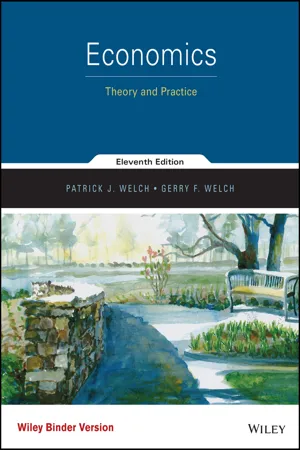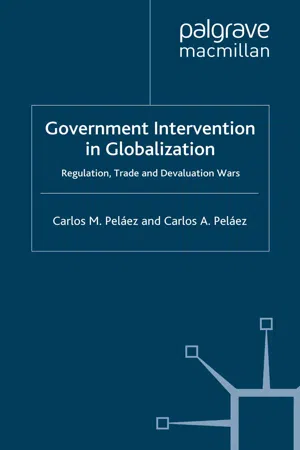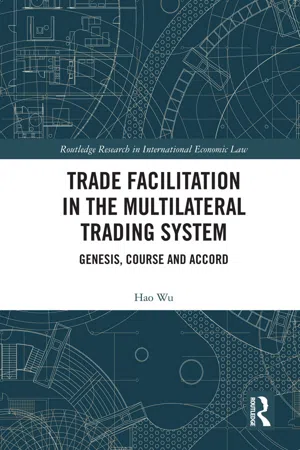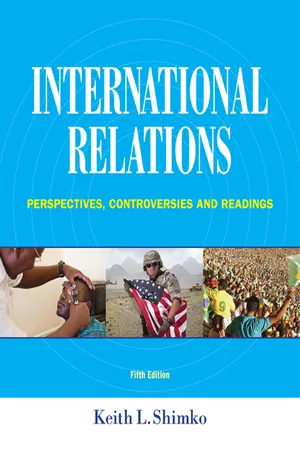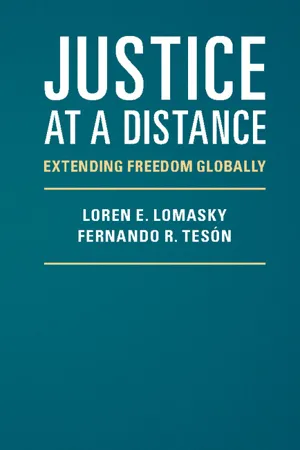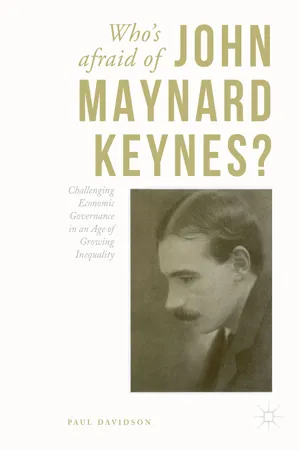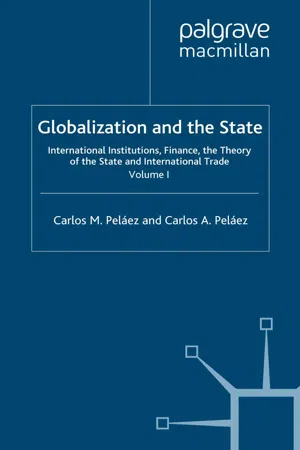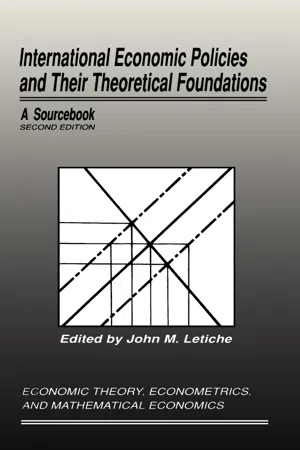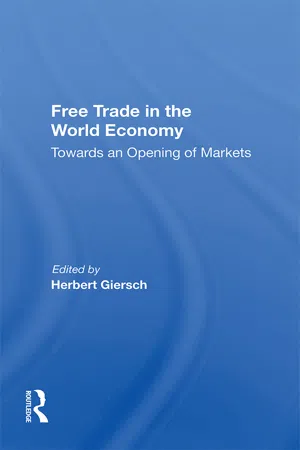Economics
Free Trade
Free trade refers to the unrestricted exchange of goods and services between countries without tariffs, quotas, or other trade barriers. It promotes economic efficiency, specialization, and competition, leading to lower prices and increased consumer choices. Proponents argue that it can stimulate economic growth and development, while critics raise concerns about potential job displacement and negative impacts on domestic industries.
Written by Perlego with AI-assistance
Related key terms
1 of 5
10 Key excerpts on "Free Trade"
- eBook - PDF
Economics
Theory and Practice
- Patrick J. Welch, Gerry F. Welch(Authors)
- 2016(Publication Date)
- Wiley(Publisher)
Everyone is free to choose with whom he or she deals, regardless of location, and there are no barriers to trade. Import taxes are not imposed to artificially raise prices and discourage pur- chases of foreign-made goods, and limits are not set on the amounts that can be bought and sold. This free flow of trade permits specialization to work to its fullest. You can check your grasp of the material in this section by answering the questions in Test Your Understanding, “Comparative Advantage.” Free Trade AND PROTECTIONISM In practice, countries often impose restrictions that impede the international flow of goods and services. Such policies, despite the fact that they may reduce a country’s ability to fully exploit its various comparative advantages, are generally justified on the grounds that they are in the best interest of the nation that is imposing them. The philosophy that it is in a country’s best interest to restrict Free Trade is known as protectionism. According to the protectionist viewpoint, unrestricted importing and/or exporting may lead to economic and noneconomic consequences injurious to the economy as a whole, to certain groups within the economy such as workers in particular industries, and/or to national security. Because of these potentially adverse effects, protectionists argue for restrictions on international trade. Protectionist policies can be employed in varying degrees: A nation may choose to have detailed regulations or loose restrictions. Also, a nation may alter the degree to which it relies on protectionist policies as economic and noneconomic conditions change. The merits of Free Trade and protectionism have been debated for hundreds of years. - eBook - PDF
One World Mania
A Critical Guide to Free Trade, Financialization and Over-Globalization
- Graham Dunkley(Author)
- 2016(Publication Date)
- Zed Books(Publisher)
2 | THE PERENNIAL DEBATE: Free Trade AND GLOBALISATION IN THEORY AND HISTORY If a foreign country can supply us with a commodity cheaper than we ourselves can make it, better buy it of them with some part of the produce of our own industry, employed in a way in which we have some advantage. (Adam Smith, 1776, 1: 478–9) Free Trade is not passé, but is an idea that has irretrievably lost its innocence. Its status has shifted from optimum to reasonable rule of thumb … [and] can never again be asserted as the policy that economic theory tells us is always right. (Paul Krugman, 1987: 132) Free Trade, and now also the wider aspects of globalisation, are probably the most debated topics in economics, dating back at least to Adam Smith, the eighteenth-century Scottish philosopher/ economist, whose statement quoted above is a classic exemplar. The core theory, known as ‘gains from trade’, holds that each country has special capacities and can maximise its output by allowing completely free, unimpeded, exchange with other countries. Fundamentalist Free Traders believe this basic truth remains unsullied to this day, despite many changes in both theory and practice since Smith’s time, so that the theory of global integration and the practice of bodies such as the WTO are squarely based upon it. But others, like the noted economist Paul Krugman, quoted above, disagree because theories have become more elaborate, the global reality has become more complex and the old verities of Free Trade doctrine are now too simplistic to adequately explain today’s world or prescribe customary policies. The magic of numbers and triangles Economists and traders have long realised, even before Adam Smith, that countries had export specialties based on their particular - eBook - PDF
Government Intervention in Globalization
Regulation, Trade and Devaluation Wars
- C. Peláez(Author)
- 2008(Publication Date)
- Palgrave Macmillan(Publisher)
89 Introduction In a rare consensus, economists tend to agree, with important exceptions, that there are benefits from trade in the form of more efficient resource allocation. The first section below provides the important analysis of the gains from trade. The relaxation of the conditions of the first-best of efficiency leads to the analysis of distortions or market failures that motivate more analysis. The main principle is to correct domestic distortions with domestic policy instruments, allowing the economy to obtain the benefits from trade. It is difficult to relate empirically trade openness and economic growth. The US uses antidumping and safeguard sanctions that many con- sider to be disguised protectionism. One of the most debated issues in policy is whether employment and wages of less skilled workers in advanced countries decline because of trade in goods produced by cheap labor, which are exported by developing countries. In 2004, the issue of losses of services jobs to offshore locations received dispropor- tionate attention in the press and public debates. The summary provides some conclusions. The gains from trade The basic analysis of the desirability of international trade focuses on the gains from trade. It is one of the first analyses of welfare economics: the wellbeing of the state of Free Trade of goods and services with other nations versus the state of no trade. There is the important proposition that some trade is better than no trade. Even trade with restrictions such as quotas and tariffs is better than no trade. A quota is a quantitative 6 International Trade of Goods and Services 90 Government Intervention in Globalization limit on imports, which are purchases from other countries, or exports, which are sales to other countries. - eBook - ePub
Trade Facilitation in the Multilateral Trading System
Genesis, Course and Accord
- Hao Wu(Author)
- 2018(Publication Date)
- Routledge(Publisher)
Anti-globalization campaigners are vocal in their criticism that globalization concurrently has caused negative side-effects, such as inequality, marginalization of small and vulnerable economies, shrinkage of traditional industries and damage to the environment. While some may contend that ‘it is the best of times’, it could also be ‘the worst of times’ 1 in the eyes of others. Nevertheless, ‘[t]oday globalization is fact of life, so the question is less about whether or not we like globalization – it is more about how we should respond’. 2 At the dawn of the new millennium, world leaders declared that ‘the central challenge we face today is to ensure that globalization becomes a positive force for all the world’s people’. 3 As Margaret Thatcher conveyed, ‘there is no alternative’. The calls for Free Trade Free Trade (also known as ‘trade liberalization’) is the enduring and dynamic engine that has driven globalization forward. 4 Liberalizing trade entails eliminating restrictions and barriers on the exchange of goods and services between countries. Among the restrictions and barriers, tariffs and non-tariff measures (NTMs) are the most salient. In the modern world where countries are tightly connected by international trade, if we are committed to steering globalization towards a promising trajectory, we should accelerate the momentum of Free Trade. At least, what generations of theorists have advocated is still worth heeding. The notion of Free Trade can be traced back to the Grotian tradition. Hugo Grotius, in The Free Sea (1609), articulated the rule of international law as the foundation: ‘it is lawful for any nation to go to any other and to trade with it’. 5 On Free Trade, he wrote in Commentary on the Law of Prize and Booty (1605): Freedom of trade, then, springs from the primary law of nations, which has a natural and permanent cause, so that it cannot be abrogated - eBook - PDF
International Relations
Perspectives, Controversies and Readings
- Keith Shimko(Author)
- 2015(Publication Date)
- Cengage Learning EMEA(Publisher)
List offered a decidedly conservative or realist critique of liberal trade doctrine. This will become evident as we deal with his major arguments. Yet List ’ s criticisms are not alone; critics have looked at Free Trade from other perspectives as well. Marxist critiques analyze Free Trade within the general context of international cap-italism. Feminists often worry about the impact of trade on women, an issue that they think is usually ignored. Interestingly, these seemingly odd ideological bedfel-lows make many of the same arguments. This paradox is reflected in the fact that a somewhat unusual coalition has emerged in opposition to the economic aspects of contemporary globalization, in which many on the political right and left find themselves aligned. More Efficient, But So What? The first major justification for Free Trade is that it promotes economic efficiency. When production and trade are based on comparative advantage, efficient produ-cers survive and inefficient ones go out of business. On purely economic grounds, critics of Free Trade concede the point: Free Trade does promote economic effi-ciency. But so what? If something is the most economically efficient thing to do, does that automatically imply that it should be done? Not necessarily. This would be the logical conclusion only if economic efficiency were the be-all and end-all of economic policy. In the real world, however, people and societies try to balance a variety of values and considerations. Societies follow policies all the time that are inconsistent with strict standards of economic efficiency. For example, most societies spend the majority of their health-care dollars on people in their last few years of life when they are no longer econom-ically productive. If societies allocated resources based solely on economic efficiency, there would certainly be other areas where this money could be better spent. - eBook - PDF
Justice at a Distance
Extending Freedom Globally
- Loren E. Lomasky, Fernando R. Tesón(Authors)
- 2015(Publication Date)
- Cambridge University Press(Publisher)
149 6 Trade The thesis we defend in this chapter was well put by a young John Maynard Keynes: We must hold to Free Trade, in its widest interpretation, as an inflexible dogma, to which no exception is admitted, wherever the decision rests with us. We must hold to this even where we receive no reciprocity of treatment and even in those rare cases where by infringing it we could in fact obtain a direct economic advantage. We should hold to Free Trade as a principle of international morals, and not merely as a doctrine of economic advantage. 1 This passage underscores two related claims: that trade is widely beneficial at the national and global levels and that tariff barriers unjustly hurt many while unjustly benefiting a few. The argument for trade, like the argument for open borders, is thus overdetermined. It is supported both by sound economics and by commonsense political morality, and it is a crucial staple in a humanitarian policy that seeks to alleviate poverty. We have argued that justice requires us not to interfere with the pursuit of personal projects. We discussed in Chapter 5 governmental interference with mobility and association. Governments also frequently interfere with voluntary agreements. Justifying such interference is a large topic in political philosophy that we do not fully address here. This chapter addresses one form of govern- mental interference with contract: the enactment of protectionist laws. These laws assume various forms: tariffs, import licenses, export licenses, import quotas, subsidies, government procurement rules, sanitary rules, voluntary 1 John Maynard Keynes, editorial in Manchester Guardian Commercial Supplement, January 4, 1923, in The Collected Writings of John Maynard Keynes, vol. - eBook - PDF
Who's Afraid of John Maynard Keynes?
Challenging Economic Governance in an Age of Growing Inequality
- Paul Davidson(Author)
- 2017(Publication Date)
- Palgrave Macmillan(Publisher)
One of the most widely believed policy conclusions of classical eco- nomic theory is that Free Trade among nations is beneficial to all trad- ing nations since Free Trade always provides more goods and services for residents in all of the Free Trade nations while fully employing all the productive resources of each trading nation. Accordingly, classical the- ory indicates that all import and export markets should be made per- manently free of any government regulations and/or restrictions such as tariffs or quotas. The conclusion of classical theory is that nations such as the United States will be better off if it would pursue Free Trade agree- ments with all other nations on the globe. What is the classical theory basis for such a conclusion? The classical theory analysis produced a “law of comparative advan- tage” which it is claimed is a universal applicable truth that assures Free Trade produces more goods and services globally with resources in every nation fully employed in their most comparative cost (supply side) pro- ductive capacity. Each nation will specialize in producing and export- ing products from those domestic industries that have a “comparative advantage” in costs of production. 9 Are Free Trade Agreements Always Beneficial? © The Author(s) 2017 P. Davidson, Who’s Afraid of John Maynard Keynes?, DOI 10.1007/978-3-319-64504-9_9 127 128 P. Davidson Comparative advantage of a nation’s industry is determined by supply side relationships regarding the productivity of capital and labor in the specific production process used to produce goods and services. In each trading nation any government interference with a free trading relation- ship between nations following the law of comparative advantage, clas- sical theory claims, will reduce the economic prosperity of the nations involved from reaching their potential optimal production output given its supply of capital and labor. - eBook - PDF
Globalization and the State: Volume I
International Institutions, Finance, the Theory of the State and International Trade
- C. Peláez(Author)
- 2008(Publication Date)
- Palgrave Macmillan(Publisher)
6 International Exchange of Goods and Services Introduction The analysis of the gains from trade began in modern economics with Smith (1776) and Ricardo (1817). In a rare consensus, economists tend to agree that there are benefits from trade in the form of more efficient resource allocation. The first section below provides the important analysis of the gains from trade. The relaxation of the conditions of the first best of efficiency leads to the analysis of distortions or market failures that motivate more analysis. The main principle is to correct domestic distortions with domestic policy instruments to permit the economy to obtain the benefits from trade. It is difficult to relate empirically trade openness and economic growth. The United States uses antidumping and safeguard sanctions that many con- sider to be disguised protectionism. One of the most debated issues in policy is whether employment and wages of less skilled workers in advanced countries decline because of trade in products intensive in cheap labor, which are exported by developing countries. In 2004, the issue of losses of services jobs to offshore locations received disproportionate attention in the press and public debates. The summary provides some conclusions. The gains from trade Adam Smith (1776) argued that it would be advantageous for a country to spe- cialize in those activities in which it had an absolute advantage in production. Absolute advantage means that the country can produce those goods at a cost lower than any other country . An efficient allocation would require that coun- tries specialize in the production of those goods in which they have an absolute advantage. Two classical economists, David Ricardo (1817) and Robert Torrens (1808, 1815), are credited with the discovery of the doctrine of comparative advan- tage (Chipman 1965a, 480–2). This doctrine was a major improvement over the 157 158 Globalization and the State: Volume I absolute advantage proposition. - eBook - PDF
- John M. Letiche(Author)
- 2014(Publication Date)
- Academic Press(Publisher)
These works were written in mathematical terms and their authors either confirmed or derived the following results. Free Trade is potentially noninferior to autarky. Trade restriction via tariffs, or quotas, is potentially noninferior to autarky. If a small country is in trade equilibrium and experiences an autonomous change in prices that is potentially beneficial, a further change in prices in the same direc-tion is potentially unharmful. Similarly, if a large country experiences this phenomenon, an expansion of foreign trade is potentially unharmful. 33 Proofs have been provided for the existence of a world Pareto-optimal competitive equilibrium, as well as for equilibrium under conditions of autarky. A general theorem demonstrates the existence of a competitive world equilibrium which is potentially noninferior for the consumers of each nation as compared with equilibrium under autarky. 34 The rela-tionships between welfare criteria in utility space and in commodity space have been rigorously formalized. 35 The concept of a social utility frontier has been used to prove a variant of the proposition that Free Trade is potentially noninferior to autarky. 36 Furthermore, the gains from trade have been investigated for situa-tions where the trading economy is faced with nonmarket externalities and the conditions formulated under which trade would still be superior to autarky. 37 A unified analysis of many of these problems shows that conditions can be postulated under which economic growth with Free Trade, or growth with tariffs, is potentially noninferior to trade under autarky; trade with subsidies—solely financed by tariff revenues—is not PART II. TERMS OF TRADE AND GAINS FROM TRADE 99 worse than no trade; and a generalization has been provided for the re-lationship between price divergence and terms-of-trade improvement. - eBook - PDF
Free Trade In The World Economy
Towards An Opening Of Markets
- Herbert Giersch(Author)
- 2019(Publication Date)
- Routledge(Publisher)
[ 1985, pp. 35-50]. 569 such negotiations. In fact, this is the way how trade liberalization in the GATT system has worked in practice. 5. Conclusions As an old proposition of economics, Free Trade is a necessary condition for maximizing the welfare of an economy and therefore moves towards this state are judged beneficial. While this notion has been qualified over the years, for example, to account for market imperfections or specific market structures, basically, it has survived (1). The gains which an economy can expect from trade liberalization depend, however, on the functioning of the international price system which, in turn, depends on the functioning of the international monetary and trading systems. At the extreme, if all countries but one practice autarchy there are no gains from trade for the open economy. Moreover, experience suggests that to the degree that the functioning of the international economy is impaired, governments in individual countries run into difficulties in attempts to maintain an open trade policy stance. These are straight-forward reasons for the desirability of strengthening the multilateral trading system which is institutionalized in the General Agreement. There is still another dimension. An important objective of the multilat-eral trading system is to help minimize the costs of trade conflicts within countries by protecting the national interest against the demands from special interest groups (2). From this perspective, trade policy talks in the GATT are efforts to arrive at rational rules for the conduct of com-mercial policy in a national rather than in an international context. The learning process can only benefit from the .fact that the input for such talks comes from a rich body of experience from a wide range of individual countries. (1) The newest attack on the Free Trade doctrine challenges it only in very specific circumstances which do not lend themselves to general-ization.
Index pages curate the most relevant extracts from our library of academic textbooks. They’ve been created using an in-house natural language model (NLM), each adding context and meaning to key research topics.
